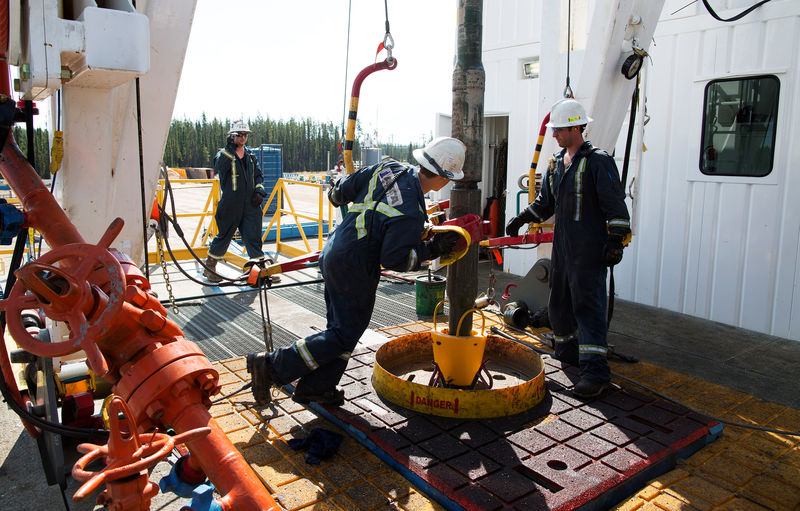Investing.com -- Oil prices settled higher Tuesday, underpinned by a stronger demand outlook, though concerns that the Federal Reserve may deliver a hawkish on Wednesday pause kept gains in check.
At 14:30 ET (18.30 GMT), the U.S. crude futures rose 0.2% to settle at $77.90 a barrel and the Brent contract climbed 0.4% to $81.92 a barrel.
EIA raises oil demand, production outlook; OPEC maintains demand forecast
The Energy Information Administration lifted its forecast for global oil demand by 180,000 barrels per day to 1.1mbpd for 2024, and by 80,000 bpd to 1.5m in 2025.
But higher demand will likely be met with an influx of domestic output, with output in 2025 expected to rise to 470,000 barrels from 530,000 barrels previously.
Rising non-OPEC output has bee one of the main headwinds for oil prices that has forced OPEC and its allies to rein in production.
OPEC, meanwhile, continued to expect world oil demand to rise by 2.25 million barrels per day in 2024 and by 1.85 million bpd in 2025.
Fed meeting gets underway; inflation data loom large
The crude benchmarks posted strong gains on Monday, buoyed by expectations that the Northern Hemisphere summer vacation season will boost fuel demand this summer.
This represented something of a recovery after last week’s sharp losses in the wake of the meeting by the Organization of Petroleum Exporting Countries and their allies, a group known as OPEC+, which indicated the possibility of an increase in supply to market by the end of the year.
“Oil prices moved higher yesterday as the market continued its post-OPEC+ meeting recovery,” said analysts at ING, in a note. “As we mentioned following the meeting, the action taken by the group leaves the market with a sizeable deficit in the third quarter of the year, supporting the view that prices trend higher.”
That said, traders are reluctant to drive the market too much higher ahead of the conclusion of the Fed’s latest policy meeting on Wednesday, the same day as inflation is due from both the U.S. and China, the two biggest crude consumers in the world.
The Fed keeping interest rates at elevated levels for longer than expected could hit economic activity in the future, while deflation can see purchases dry up as businesses and consumers expect to pay less later as prices fall, hitting economic activity and dampening oil demand.
US crude stockpiles due - API
Traders will also be keeping an eye out for the latest estimate of U.S. crude stockpiles from the American Petroleum Institute later in the session.
Data released last week showed that crude inventories increased by about 4.0 million barrels for the week ended May. 29, a surprise given that economists were expecting a decrease of 1.9M barrels.
Gasoline stockpiles rose by 4.03M barrels, while distillate inventories -- the class of fuels that includes diesel and heating oil -- increased by 2.0M barrels.
The official government inventory report is due Wednesday.
